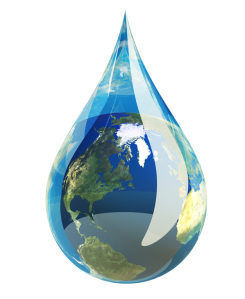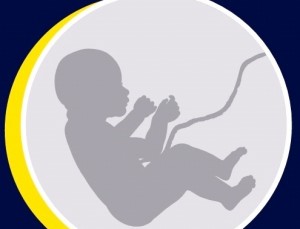by Paulo R.B. de Brito
I watched the movie Life of Pi a few weeks ago. The story-line revolves around a 16-year old Indian boy named Piscine Molitor “Pi” Patel, who survives a shipwreck in which his family dies, and he finds himself stranded in the Pacific ocean on a lifeboat with a Bengal tiger named Richard Parker. I really enjoyed the movie and watching it made me realize how dependent we are on fresh water.
Water is life for us and for our planet. The human body is made up of 60% water and the human brain of 75%1. Fresh water is one of the most precious resources on Earth. It is essential for basic human needs, health, food production, energy, and maintenance of ecosystems worldwide 2 I wanted to pay homage to this incredible God-given resource. World Water Day is held each year, an internationally recognized day sanctioned by the United Nations (UN) to raise global awareness about water issues, this year it was held on March 22.
Present research indicates that fresh water in our planet is poorly and inefficiently managed. The Global International Water Assessment (GIWA)
 reports that water is predicted to become more scarce by 2020 due to increased demand paralleled with increased agricultural production and economic growth.3 The main cause of scarcity – lack of good management practices exacerbated by global climate change.
reports that water is predicted to become more scarce by 2020 due to increased demand paralleled with increased agricultural production and economic growth.3 The main cause of scarcity – lack of good management practices exacerbated by global climate change.
Globalization and competitive markets treat fresh water as merely an economic good; one more business product in the hundreds of shelves in a grocery store. World leaders recently met in the famous World Economic Forum in Davos and declared water scarcity to be the second most important world risk. During the 2013 meeting, the secretary general at the UN, Ban Ki-Moon, reminded presidents, business leaders, and NGOs that most of us did not appreciate water. We just took it for granted.4
Appreciating, valuing, and properly managing water is an issue that the Davos forum and even the UN World Water Day cannot resolve. It goes beyond water management issues. It has to do with ethics. Francis Schaeffer in his great writing “Pollution and the Death of Man”5 highlights that creation care and, more specifically, water care is an ethical issue. According to him, humanity has become egocentric. We have established ethics that encompass human-to-human relationships, but the human-to-nature relationship has not come into the conversation of ethics until recently. A new perspective is needed. What does our faith say about this ethical issue?
Valuing our water resources requires a change in mindset; a change from our egocentric reasoning and thought processes to an altruistic perspective of the world in which we live (I Corinthians 14:20). In Romans 12:2, Paul implores us not to conform any longer to the pattern of this world but be transformed by the renewing of our minds. Finally, Christianity highly values stewardship as a pillar of the faith. Stewardship, from the Latin “majordomu” means “the great caretaker of the home.” God entrusted us with the task of caring for His creation, naming us ambassadors of his house, the Earth (Gen 2:15). Given that God is the owner and master of the Earth; it is our divine responsibility to care for it as best as possible, using natural resources wisely and rationally.
My hope in light of World Water Day is that we not only change our mindset, but we act as Jesus did- bringing restoration for creation. My hope is that the renewing of our minds will cause us to change our attitudes towards this most precious resource. We all can share this responsibility of caring for water as a way to glorify His name.
If you would like to find out more information about World Water Day and ways to improve your water use, see the links below:
UN Water: http://www.unwater.org/water-cooperation-2013/home/en/
World Water Week: http://www.worldwaterweek.org/
Compassion: http://www.compassion.com/world-water-day.htm?referer=120024&gclid=CJf2y827jrYCFetAMgodk28Aew
Water, Use it wisely: http://wateruseitwisely.com/100-ways-to-conserve/
Re-posted with permission from the Blog of Paulo R.B. de Brito















